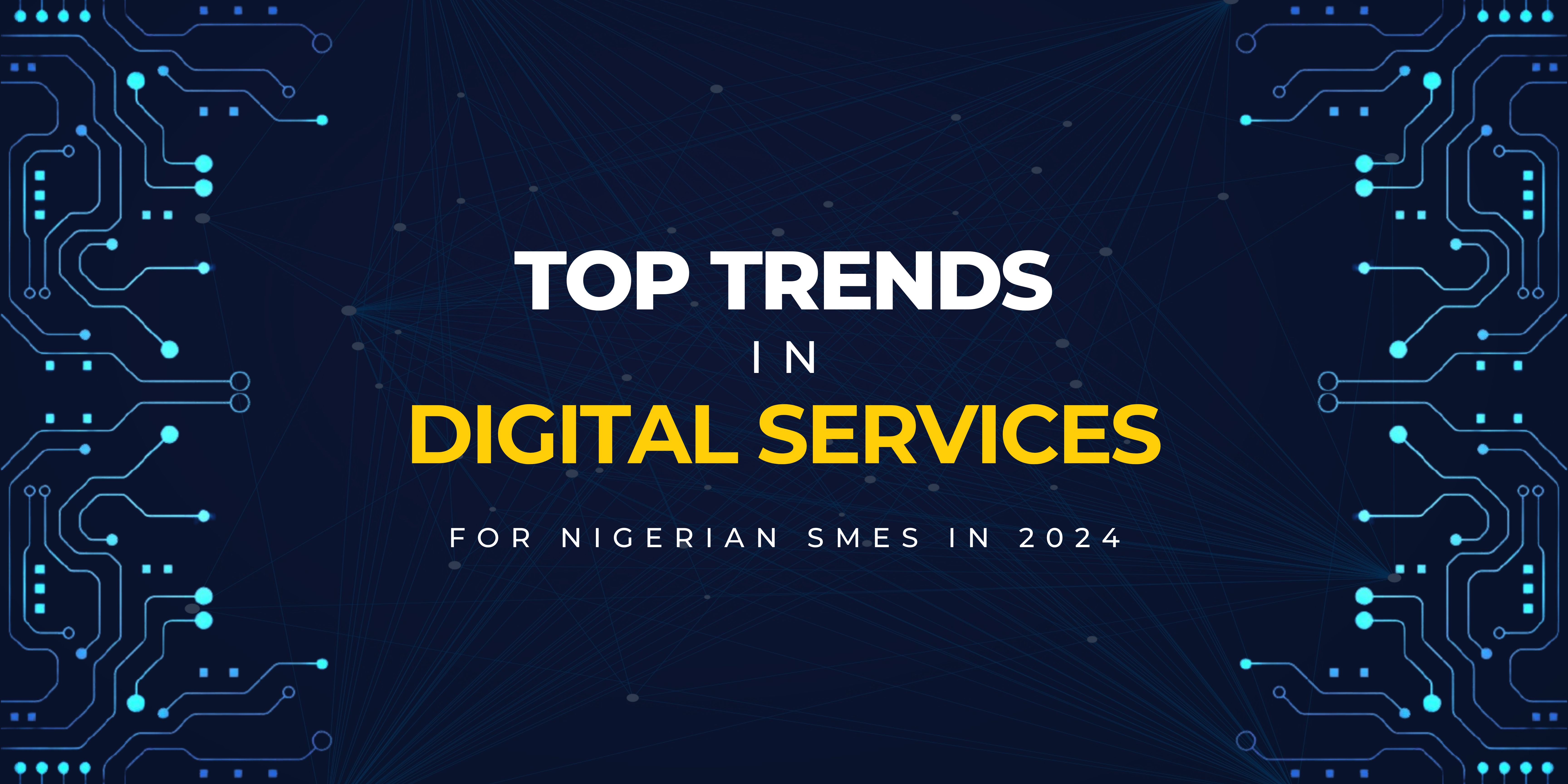In the dynamic landscape of digital transformation, Nigerian SMEs are increasingly leveraging advanced technologies to stay competitive and drive growth. As we move further into 2024, several key trends in digital services are shaping the way small and medium enterprises operate in Nigeria. Here’s an in-depth look at the top trends:
1. Cloud Computing and Storage Solutions
Cloud computing continues to be a game-changer for Nigerian SMEs. With affordable and scalable options, businesses can now store, manage, and process data more efficiently than ever. In 2024, we’re seeing a rise in the adoption of cloud services like AWS, Microsoft Azure, and Google Cloud, which offer robust security and easy access to critical business data from anywhere. This flexibility is particularly beneficial for remote work and disaster recovery scenarios.
2. Artificial Intelligence and Machine Learning
AI and machine learning are no longer buzzwords but integral components of business strategy. Nigerian SMEs are utilizing AI-driven tools for customer service (chatbots), personalized marketing, and predictive analytics. Machine learning algorithms help in making data-driven decisions, improving operational efficiency, and enhancing customer experiences by providing insights into customer behavior and preferences.
3. Cybersecurity Enhancements
With the rise of digital services comes the increased risk of cyber threats. In 2024, cybersecurity is a top priority for Nigerian SMEs. Businesses are investing in advanced cybersecurity solutions to protect their data and IT infrastructure from attacks. This includes the implementation of multi-factor authentication, encryption, and regular security audits. Educating employees about cyber hygiene is also crucial to prevent breaches caused by human error.
4. E-commerce and Mobile Commerce
The e-commerce sector is booming in Nigeria, driven by the proliferation of smartphones and improved internet connectivity. SMEs are setting up online stores to reach a broader audience and offer convenient shopping experiences. Mobile commerce (m-commerce) is particularly significant as consumers increasingly prefer shopping via their mobile devices. Integrating secure payment gateways and offering mobile-friendly websites are key strategies for success in this space.
5. Digital Payment Solutions
Digital payments are revolutionizing transactions for Nigerian SMEs. Platforms like Paystack, Flutterwave, and Opay are making it easier for businesses to accept payments online. These solutions not only streamline the payment process but also offer features like transaction tracking and financial analytics. The convenience and security of digital payments are encouraging more consumers to engage in online transactions, boosting sales for SMEs.
6. Social Media and Influencer Marketing
Social media remains a powerful tool for marketing and brand building. Nigerian SMEs are leveraging platforms like Instagram, Facebook, and Twitter to engage with their target audience, promote products, and build brand loyalty. Influencer marketing, where businesses collaborate with social media influencers, is also gaining traction. This strategy helps in reaching a larger audience and enhancing credibility through trusted voices.
7. Remote Work Solutions
The trend of remote work, accelerated by the COVID-19 pandemic, continues to evolve. Nigerian SMEs are adopting remote work solutions, including collaboration tools like Slack, Zoom, and Microsoft Teams. These tools facilitate communication and collaboration among distributed teams, ensuring business continuity and productivity regardless of location.
8. Internet of Things (IoT)
IoT technology is being increasingly adopted by Nigerian SMEs to streamline operations. From smart office setups to inventory management systems, IoT devices provide real-time data and automation capabilities. This technology helps in improving efficiency, reducing costs, and enhancing decision-making processes by providing actionable insights.
9. Customer Relationship Management (CRM) Systems
CRM systems are essential for managing customer interactions and data. Nigerian SMEs are implementing CRM solutions like Salesforce, HubSpot, and Zoho to improve customer service, manage sales pipelines, and track customer engagement. These systems help businesses understand their customers better, leading to more personalized and effective marketing strategies.
10. Digital Skill Development
As technology evolves, so does the need for digital skills. Nigerian SMEs are investing in training and development programs to equip their employees with the necessary digital skills. Online courses, workshops, and certifications in areas like digital marketing, data analytics, and IT support are becoming increasingly popular. This investment in human capital ensures that businesses can effectively leverage digital tools and stay ahead of the competition.
Conclusion
The digital landscape for Nigerian SMEs in 2024 is vibrant and full of opportunities. By embracing these top trends in digital services, businesses can enhance their operational efficiency, reach a wider audience, and drive sustainable growth. Staying updated with the latest technologies and continually adapting to the digital environment will be crucial for the success of Nigerian SMEs in the coming years.

